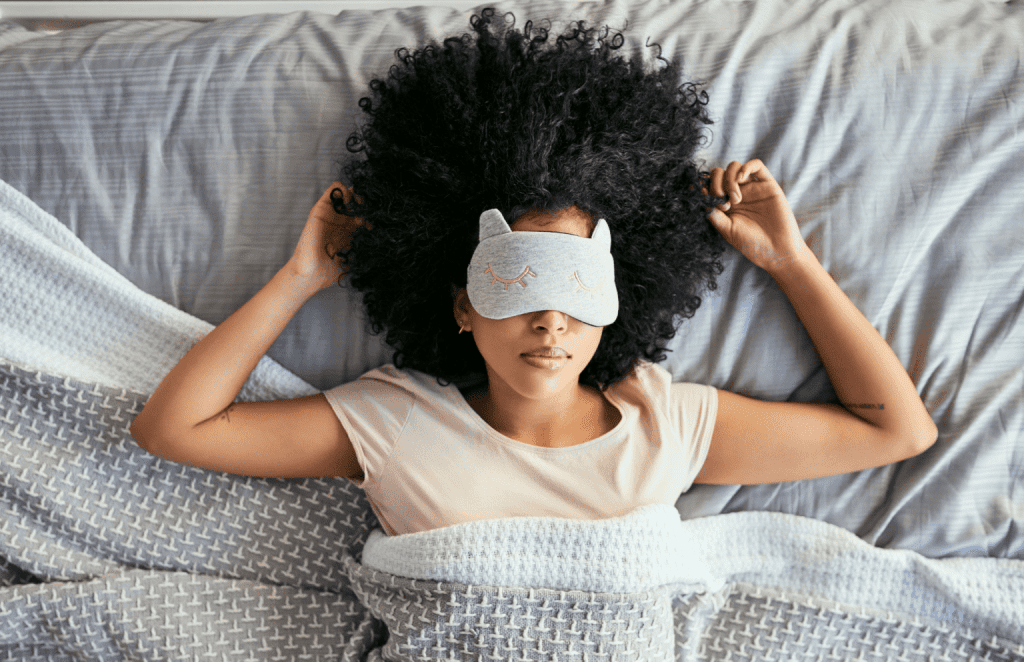Most of us know that a good night’s sleep is essential for our health, yet in today’s busy world, getting enough rest can feel like an impossible feat. While experts recommend an ideal seven to eight hours of sleep per night, achieving this consistently is often challenging. Whether it’s Netflix binges, endless scrolling on our phones, or the weight of daily stress, countless factors interfere with quality sleep. However, recent studies reveal that consistently getting too little sleep can lead to serious health issues— and may even shorten your life.

Sleep isn’t just a time for rest; it’s a critical period during which the body repairs itself, processes emotions, and strengthens the immune system. Skimping on this essential time can have far-reaching effects on both physical and mental health. In this article, we explore the science behind sleep deprivation, its impact on longevity, and actionable steps to improve your sleep quality and protect your health.
Why Sleep Matters More Than You Think
Sleep isn’t just about feeling rested; it’s fundamental to our overall health. During sleep, our bodies perform essential processes, from cell repair to memory consolidation. Quality sleep is vital for everything from immune function and mental clarity to emotional stability.
The Sleep Cycle and Why It’s Important
Our sleep cycles consist of two main stages: rapid eye movement (REM) sleep and non-REM sleep, which are essential for rejuvenation. REM sleep is particularly critical as it’s the phase where the brain processes emotions and solidifies memories. Non-REM sleep, especially deep sleep, is when the body works on cell repair and immune function.
Not getting enough of either phase can disrupt these processes, impacting how we feel both physically and mentally the next day. Over time, the cumulative effects of disrupted sleep cycles can contribute to chronic health issues.
@drdanfriederich If you want an early death, sleep 4-5 hours a night 😴 . . . #eyehealth #optometrist #doctorsofinstagram #eyehealthtips #dryeyes #health #fitness #healthyrecipes #optometry #eyewear #optician #healthspo #fitlifestyle #optical #wellness #healthychoices #fitnesslifestyle #healthylife #fitspiration #healthyliving #fitfood #gym #fit #healthyfood #healthylifestyle #livehard #75hard #nutrition #sleeptips ♬ original sound – Eyeganics
The Alarming Link Between Lack of Sleep and Longevity
Recent research, including studies conducted by the University College London, has shown a strong correlation between inadequate sleep and increased mortality risk. Dr. Dan Friedrich, a prominent sleep researcher, emphasizes the dangers of getting only four to five hours of sleep each night, explaining that it can increase the risk of early death.
Increased Risk of Chronic Illnesses
Consistently sleeping fewer than six hours per night has been linked to a higher likelihood of developing chronic conditions, such as cardiovascular disease, diabetes, and obesity. Poor sleep affects hormone regulation, particularly those that influence appetite and blood sugar levels, making it harder to maintain a healthy weight and putting more strain on the heart.
A 2021 study following adults over the age of 50 found that individuals sleeping less than five hours per night had a 25% higher risk of premature death. The lead author, Dr. Severine Sabia, notes that the lack of sleep contributes to “multimorbidity,” a condition in which people experience two or more chronic diseases simultaneously, such as diabetes and heart disease.
Too Much Sleep Isn’t the Solution Either
While we often hear about the dangers of too little sleep, it turns out that excessive sleep can be problematic too. Researchers recommend keeping sleep duration within a range of six to eight hours per night, with seven to eight being ideal for most adults. Studies show that consistently sleeping more than nine hours can have adverse effects, increasing the risk of chronic conditions.
The Dangers of Oversleeping
Excessive sleep can disrupt natural circadian rhythms and has been linked to a higher risk of mental health issues, particularly depression and anxiety. When people sleep too much, it may be an indication of underlying health issues, such as sleep apnea, thyroid disorders, or chronic fatigue syndrome. While some people may feel the need to catch up on sleep occasionally, consistently oversleeping can be just as detrimental as undersleeping.
Health Risks Associated with Poor Sleep
Sleep deprivation can have serious health implications, affecting nearly every organ system. Here’s a look at some of the most critical health risks linked to poor sleep:
1. Cardiovascular Disease
Numerous studies confirm that chronic sleep deprivation is a major risk factor for cardiovascular diseases, including hypertension, heart attack, and stroke. Poor sleep impacts blood pressure regulation and inflammation levels, both of which contribute to heart health.
2. Weak Immune System
Sleep is essential for immune function. During sleep, the immune system releases cytokines, proteins that help the body fight off infections and inflammation. Lack of sleep weakens this response, making individuals more susceptible to illness.
3. Weight Gain and Obesity
Insufficient sleep disrupts the hormones that regulate hunger and appetite, leading to increased cravings for high-calorie, sugary foods. Studies show that sleep-deprived individuals are more likely to gain weight and struggle with obesity.
4. Mental Health Issues
Poor sleep is closely associated with anxiety and depression. Chronic sleep deprivation impacts mood-regulating neurotransmitters, making it harder to manage stress and emotions. Lack of sleep can exacerbate mental health conditions, creating a vicious cycle that’s hard to break.
5. Cognitive Decline and Memory Loss
Sleep is crucial for cognitive functions, including memory and learning. Consistently sleeping less than six hours a night can impact memory consolidation and increase the risk of cognitive decline as we age.
Tips for Improving Sleep Quality Naturally
Improving sleep quality doesn’t always require drastic changes; often, small adjustments to your daily routine can make a big difference. Here are some effective, natural strategies to help you get better sleep:
1. Establish a Consistent Sleep Schedule
Try to go to bed and wake up at the same time every day, even on weekends. This consistency helps regulate your body’s internal clock, making it easier to fall asleep and wake up naturally.
2. Create a Calming Pre-Sleep Routine
Engaging in relaxing activities before bed can signal to your brain that it’s time to wind down. Avoid bright screens and stimulating activities in the hour leading up to bedtime. Instead, try reading, taking a warm bath, or practicing gentle yoga.
3. Optimize Your Sleep Environment
Creating an ideal sleep environment can significantly impact the quality of your rest. Ensure that your room is dark, quiet, and cool. Invest in comfortable bedding and pillows that support good sleep posture. Blackout curtains and a white noise machine can be especially helpful if you’re sensitive to light or noise.
4. Avoid Stimulants and Heavy Meals Before Bed
Caffeine, nicotine, and heavy meals can all interfere with sleep quality. Try to avoid caffeine at least six hours before bedtime, and aim for lighter, easily digestible meals in the evening to prevent discomfort.
5. Get Physical Activity During the Day
Exercise promotes better sleep, but timing matters. Engaging in physical activity too close to bedtime can be counterproductive, as it increases alertness and raises body temperature. Aim to complete workouts at least a few hours before bed.
6. Limit Screen Time and Digital Distractions
Excessive screen time, especially in the hours leading up to sleep, disrupts melatonin production, making it harder to fall asleep. Instead of scrolling through social media or watching videos late at night, consider setting boundaries with your devices. Many phones now offer “night shift” settings that reduce blue light, which can be helpful, but turning off screens entirely is the most effective approach.
The Importance of Sleep Hygiene for Better Health
Sleep hygiene is a set of habits that promote consistent, uninterrupted sleep. Practicing good sleep hygiene can be one of the most effective ways to improve sleep quality and overall health. Here’s how to make sleep hygiene part of your daily routine:
- Set a Consistent Sleep and Wake Time: Regularity helps anchor your body’s internal clock, making it easier to get restful sleep.
- Create a Relaxing Bedtime Ritual: A routine that calms you down, like meditation or journaling, signals to your body that it’s time for bed.
- Keep the Bedroom for Sleep and Relaxation Only: Avoid working, eating, or watching TV in bed to help your mind associate the bed with rest.
Sleep and Aging: Why Older Adults Need to Prioritize Rest
As we age, sleep quality and sleep structure often change, which can impact overall health. For older adults, maintaining healthy sleep habits is crucial, as sleep deprivation increases the risk of cognitive decline, chronic disease, and reduced mobility.
Changes in Sleep Patterns with Age
Aging can result in lighter, less restorative sleep, making it essential to adopt strategies that support quality rest. Older adults may benefit from adjusting their sleep schedules to fit natural energy levels and incorporating naps if needed, as long as they don’t interfere with nighttime sleep.
Supporting Sleep with Daytime Habits
Daytime habits, like staying physically active and getting exposure to natural light, play an essential role in supporting healthy sleep. Spending time outdoors helps regulate the body’s internal clock, making it easier to feel sleepy at night.
Conclusion: Protecting Your Health Through Better Sleep
Prioritizing quality sleep is one of the most powerful steps you can take for your health and longevity. From physical health benefits like a stronger immune system and reduced risk of chronic illness to mental health improvements, sleep plays a foundational role in every aspect of well-being. By adopting a consistent sleep routine, practicing good sleep hygiene, and making thoughtful lifestyle adjustments, you can improve your sleep quality and, in turn, your overall health.
The impact of sleep extends beyond just feeling rested—it’s a cornerstone of a healthy, fulfilling life. Don’t underestimate the power of a good night’s sleep; your body and mind will thank you for it.


